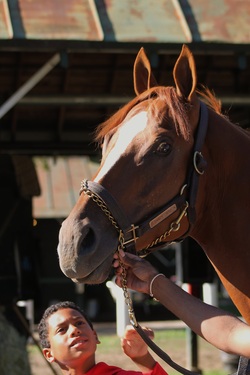
The responsibilities of Connecticut horse owners were significantly changed on Wednesday, thanks to a ruling by the Connecticut Supreme Court. The Court ruled that the horse is “a species naturally inclined to do mischief or be vicious.” Supreme Court members deemed that horses are naturally inclined to bite.
The court ruled that owners have “a duty to take reasonable steps to prevent the animal from causing injuries that are foreseeable because the animal belongs to a class of animals that is naturally inclined to cause such injuries.” This ruling means that owners can be held liable if a horse causes an injury that the owner hasn’t taken preemptive steps to prevent. While liability insurance is available to individual horse owners, the horse’s being deemed an animal "naturally inclined to do mischief or be vicious" could result in their becoming uninsurable.
The ruling was prompted by an incident in 2006 when a boy was bitten by a horse he was trying to pet on a farm in Milford, Connecticut. The responsibilities of the horse's owner were called into question - if a horse is naturally prone to bite or be vicious, should the horse have been muzzled or kept in an area where people could not easily access him?
We all know that some horses are more mischievous than others, and some horses may be more prone to bite or kick than others. But ruling that all horses are naturally vicious is an extreme step, and one that could have significant implications for horse owners down the road.
The court ruled that owners have “a duty to take reasonable steps to prevent the animal from causing injuries that are foreseeable because the animal belongs to a class of animals that is naturally inclined to cause such injuries.” This ruling means that owners can be held liable if a horse causes an injury that the owner hasn’t taken preemptive steps to prevent. While liability insurance is available to individual horse owners, the horse’s being deemed an animal "naturally inclined to do mischief or be vicious" could result in their becoming uninsurable.
The ruling was prompted by an incident in 2006 when a boy was bitten by a horse he was trying to pet on a farm in Milford, Connecticut. The responsibilities of the horse's owner were called into question - if a horse is naturally prone to bite or be vicious, should the horse have been muzzled or kept in an area where people could not easily access him?
We all know that some horses are more mischievous than others, and some horses may be more prone to bite or kick than others. But ruling that all horses are naturally vicious is an extreme step, and one that could have significant implications for horse owners down the road.
 RSS Feed
RSS Feed
